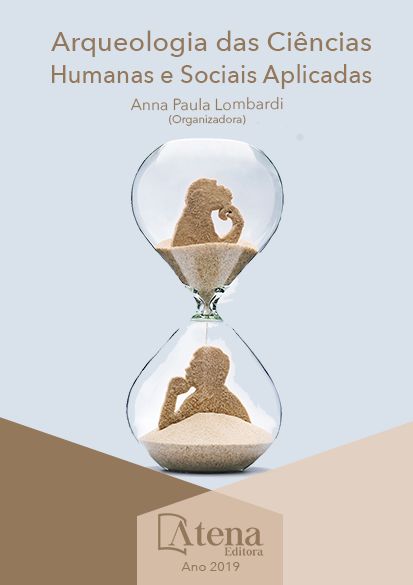
SANTO ANTÔNIO DE JESUS – RECONSTRUINDO UMA HISTÓRIA CONSCIENTIZAÇÃO CULTURAL ATRAVÉS DA CONTEXTUALIZAÇÃO HISTÓRICA DE SANTO ANTÔNIO DE JESUS
Ao realizar um apanhado
bibliográfico sobre a cidade de Santo Antônio
de Jesus, percebeu-se uma grande carência de
análise e produção de pesquisas arquitetônicas
e urbanísticas sobre a mesma. É uma das
cidades mais importantes do recôncavo baiano,
considerada capital deste, por fatores como
a localização em um ponto de confluência e
intercâmbio entre municípios e proximidade
da cidade de Salvador. A pesquisa se torna
necessária devido à constatação um déficit
de análise do processo de desenvolvimento
histórico e sociocultural da cidade, que levou o
município a não preservar seu patrimônio e os
citadinos a não compreenderem sua morfologia
urbana, confirmou-se através das análises
realizadas que há falta de apropriação cultural
pela população e constatou-se que isso acontece
devido a fatores socioculturais como: descaso
quanto à história local no ensino durante a
educação de base, falta de informação histórica
em locais públicos, má formação da cidade, e
questões como a “modernização” nas décadas
de 30 e 50. A conscientização social sobre a
importância de conhecer a história da cidade
foi um dos principais resultados obtidos. O
trabalho realizado nas páginas em redes sociais
com postagens de recapitulação da história
através da revisitação ao passado arquitetônico
e urbanístico propicia tal conscientização,
tornando possível a disseminação de conteúdo
rico em valor para a construção da consciência
cidadã enquanto constituintes da cidade. A
democratização do saber gera consciência
e sentimento de pertencimento, tendo como
consequência, o melhor uso do espaço urbano
e valorização da conjuntura atual da cidade por
parte da população.
SANTO ANTÔNIO DE JESUS – RECONSTRUINDO UMA HISTÓRIA CONSCIENTIZAÇÃO CULTURAL ATRAVÉS DA CONTEXTUALIZAÇÃO HISTÓRICA DE SANTO ANTÔNIO DE JESUS
-
DOI: 10.22533/at.ed.35319150119
-
Palavras-chave: Santo Antônio de Jesus; arquitetura; urbanismo; conscientização; história.
-
Keywords: Santo Antônio de Jesus; architecture; urbanism; awarness; history.
-
Abstract:
When was accomplished a
bibliographical research about the city of Santo
Antônio de Jesus, there was a great lack of
analysis and production of architectural, sociocultural and urban researches about it. This is
one of the most important cities in Recôncavo
Baiano, considered the capital of this, by
factors such as location at a confluence point
and interchange between municipalities and
proximity to the city of Salvador. In view of this
fact, the present research has as main objective
to disseminate the historical-cultural knowledge
of the city to its citizens, thus transforming them
into agents of their public space. In this study we propose to develop, through field and bibliographical research, a virtual collection
of knowledge that allows us to reconstruct the narrative of the city’s development under
an architectural and urbanistic perspective, making the knowledge of its trajectory
accessible in the passing of time, through this, to strengthen an architectural, urbanistic
and socio-cultural identity that can be recognized and assimilated by its population. The
research becomes necessary due to the fact that a deficiency of analysis of the process
of architectural and urban development of the city, which led the municipality not to
preserve its patrimony and the city dwellers not to understand its urban morphology,
it was confirmed through analyzes that there is a lack of cultural appropriation by the
population and that this is due to factors of basic education, lack of historical information
in public places, and issues such as “modernization” in the 30’s and 50’s. The social
awareness about the importance of knowing the history of the city was one of the main
results obtained. The work carried out in the pages in social networks with postings of
recapitulation of history through the revisitation to the architectural and urbanistic past
provides such awareness, making possible the dissemination of content rich in value
for the construction of citizen consciousness as constituents of the city; as initially
proposed, one of the objectives of this work, thus causing an impact on the future of
the municipality. The democratization of knowledge generates awareness and a sense
of belonging, resulting in the best use of urban space and appreciation of the current
conjuncture of the city by the population
-
Número de páginas: 15
- LUANA VEIGA MEIRA


